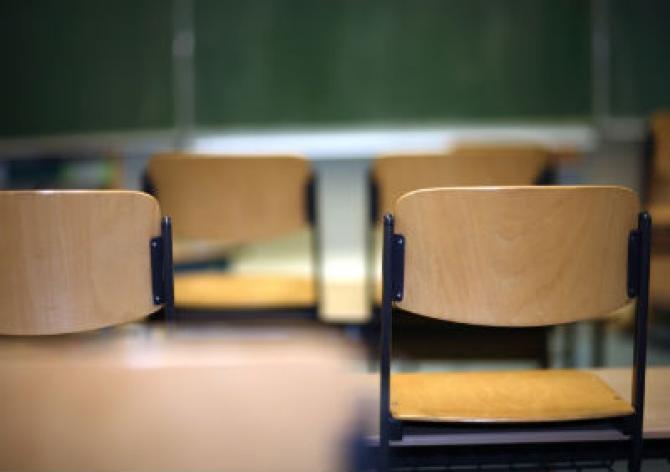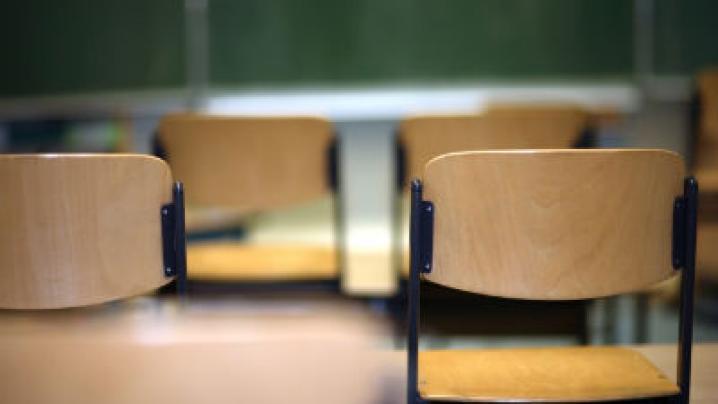[ad_1]

Everyone seems to think that a lack of soft skills is the reason students of color aren’t ready for college and careers. More schools and after-school programs are teaching students how to have “grit,” compassion and a “growth mindset.” Under the Every Student Succeeds Act (pdf) of 2015, states are encouraged to use “nonacademic” factors to hold schools accountable.
Rubbish! Soft-skills training is disguised bootstrapping, which insidiously blames youths for failing in racist systems designed to block their success, and it absolves the middle class of any responsibility to uproot inequality. It is racism that really keeps students out of college and careers, not a child’s lack of resilience. Students are ready for college and jobs. Postsecondary institutions and employers are not ready for black and brown youths.
No amount of mentoring can repair the damage done to black youths in Flint, Mich., who have been drinking lead-poisoned water because of malign government neglect. But when it comes to black men and boys, we invest millions to develop their soft skills, as if teaching proper eye contact solves health disparities, police violence and the unemployment crisis in inner cities. For the sake of getting students college and career ready, youth-serving programs and schools are essentially training students to adapt to broken systems.
I attended the Ready by 21 National Meeting, which brought forth strategies to improve the quality of service providers and reach young people who aren’t employed or in school.
It mostly lived up to its billing. However, one session, titled “Early Work Readiness Skill Development,” typifies a bugaboo with the readiness movement. That session diagnosed that “youth in America suffer from soft-skill deficiencies due to a lack of focus on these skills at home and in school.”
Here’s the problem: The idea that categorical disparities between black men and boys and white men and boys in cities across the county are because black folk fail to adapt is not new; it’s as old as racism itself.
The real reason that youths in Flint or Detroit develop differently than someone growing up in affluent Grosse Point is discriminatory public policy. Certainly we need to help youths cope with poor-performing systems, but the elevation of soft skills as the new way forward to improve outcomes for youths of color essentially encourages them to adapt to inequality.
Moira O’Neil, senior researcher and director of interpretation at the FrameWorks Institute, who presented at the Ready by 21 conference, illustrated how stubborn societal beliefs around willpower, bad parents and dangerous communities bias our appetite against policy change. “Concepts like grit reinforce ‘Pull yourself up by your bootstraps’ language, which doesn’t lead to policy change,” said O’Neil. “Advocates should focus their communications on the external factors that generate resilient outcomes, rather than inadvertently triggering unproductive thinking about what’s supposedly wrong with youth.”
Categorical disparities are not because black folk fail to adapt; policies are achieving their intended goals. The NAACP reports that African Americans are incarcerated at nearly six times the rate of whites. Districts in the South accounted for 50 percent of black-student expulsions from public schools in the United States. These policies hurt youths’ chances of going to college or getting a job.
Students are ready for systems and institutions to change. Men and boys of color need to learn how to deconstruct systems rather than adapt to broken ones.
Here’s an example of what that might look like: On April 6 the Louisiana Youth Justice Coalition convened young people and advocates from around the state on the steps of the Louisiana state Capitol to call for juvenile-justice reform. Approximately 6,000 17-year-olds in Louisiana were prosecuted as adults last year, which has had a devastating impact on individuals and communities.
The youths who met Gov. John Bel Edwards and other legislators needed to know how to effectively demand changes in the barriers to human potential and persuade others to join the movement. Systems need fixing; students need support.
Many out-of-school programs are already doing some of this work. Public schools, on the other hand, are a fixture in the school-to-prison pipeline.
Students need highly trained teachers, nurturing climates, scholarships and hard human-capital goods that make real differences. Students shouldn’t take yet another test to see if they’re developing enough resilience. Saying that a kid from Baltimore, St. Louis or New Orleans needs grit is like saying a mountain climber needs to get rid of her fear of falling.
Stop adjusting youths to injustice. But if eye contact needs to be made, prepare students to stare power in the eyes and unapologetically demand justice.
This story was produced by the Hechinger Report, a nonprofit, independent news organization focused on inequality and innovation in education.
Andre Perry, Ph.D., is the former founding dean of urban education at Davenport University in Grand Rapids, Mich. Previously, Perry served as CEO of the Capital One-University of New Orleans Charter Network.
[ad_2]





















